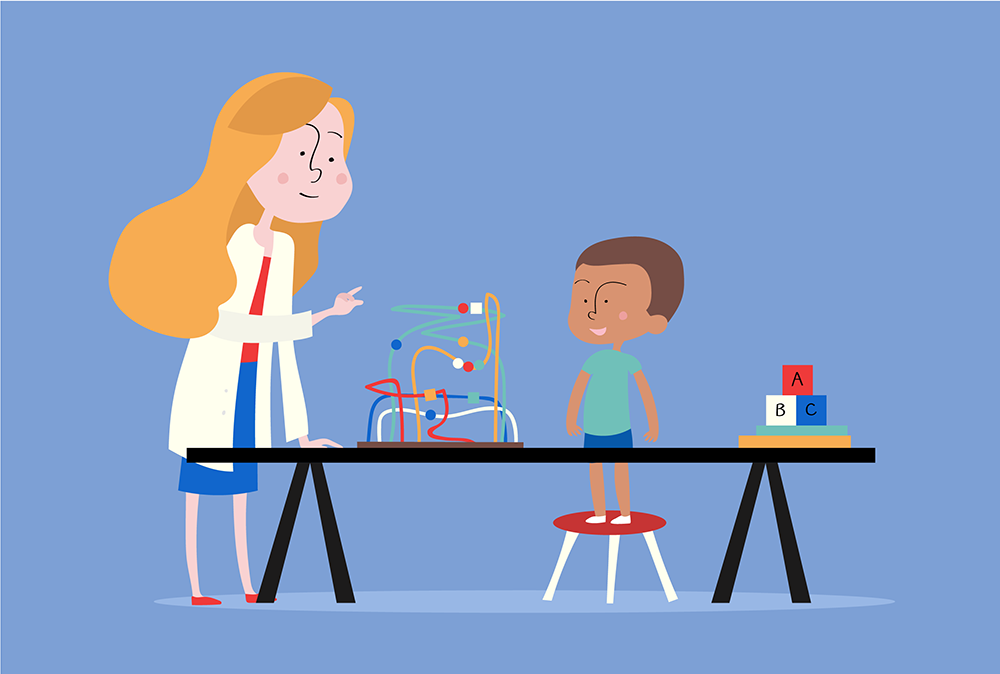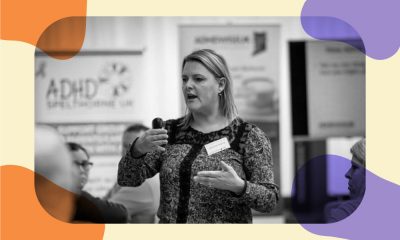Inclusion
Why Early Intervention Isn’t Just for Children With Special Needs
This can benefit neurotypical kids as well as children of determination.
Early intervention is perhaps one of the most important services a child with a developmental delay can benefit from. The delay can consist of the child not meeting certain developmental markers such as talking, crawling, playing and following instructions. Early intervention is an educational service which consists of specialized therapy specifically created for the identified delay. The focus of early intervention services is to provide young children between the ages of one to four assistance to reach developmental milestones. Through tailor made educational programming, the goal is to put the child on the same playing field as the rest of their peers. With the child receiving these services, they will start to develop their communication and social skills as they now have the prerequisite abilities and foundation to do so.
A great misconception about early intervention services is that it’s directly tied to autism. Some parents may feel that their child has to have autism to receive help. This is simply not the case. Early intervention targets developmental milestones which haven’t yet been achieved. Whether the child has autism or not is of no consequence to the service because it doesn’t treat the diagnosis. It treats the individual child by focusing and creating programming for the child’s developmental markers they may not yet have attained. An interesting fact is that most children who receive early intervention services do not have autism, but typically just have a delay in either speech or a developmental milestone.
A great misconception about early intervention services is that it’s directly tied to autism.
Regardless of the child’s current diagnosis status, early intervention tends to yield great results. Yet I’ve noticed that there’s sometimes a sense of resistance in utilizing these services. Some families don’t opt for early intervention assistance because they stick to the ‘wait and watch’ approach. When I encourage parents to get early intervention for their child, the most common phrase I hear is “they’ll grow out of it.” For some parents, it might be hard to accept that their child is facing some developmental delays. They might think that receiving a service means their child has been diagnosed with autism or other developmental disabilities.


(c) Reset Fest Inc, Canada
Sadly, I’ve also encountered many parents who regret not getting these services earlier. They feel guilty, cry and call themselves bad parents. However, it’s never too late to get intervention services that will help the child improve. I cannot stress enough that reaching out for help earlier will drastically reduce the amount of support a child will need later in life. Studies have shown that when help is sought earlier, it reduces the overall duration of services a child requires. This, in turn, also cuts down on the lifetime cost of services for the child.
The most important point I want parents to know about early intervention is that it’s not just exclusively for children with autism. I see a trend with parents waiting to get a formal diagnosis before seeking help. Furthermore, for parents who don’t believe their child has autism, they hold off on any type of help waiting for the child to “grow out of it.”
All early intervention can do is help.
All early intervention can do is help. If you child is neurotypical, it just means they will develop their milestones quicker. Receiving early intervention services isn’t an admission of a developmental disability. It does not imply that there is anything developmentally wrong with your kid. It just simply means they are developing at a slower rate than their peers. Our goal with early intervention is to speed up the rate of your child’s development in a safe manner.
If you suspect your child may have a delay, don’t jump to conclusions and stress. I’ve seen lots of children who’ve had delays and many of them did not have autism. Some of those kids did have autism and that’s fine too. Remember that there are plenty of services out there that will help children live their lives well and to their fullest potential. And that, at the end of the day, is what we should really focus on.
The writer is the Managing Director of the Autism Rocks Support Centre in Dubai.

























